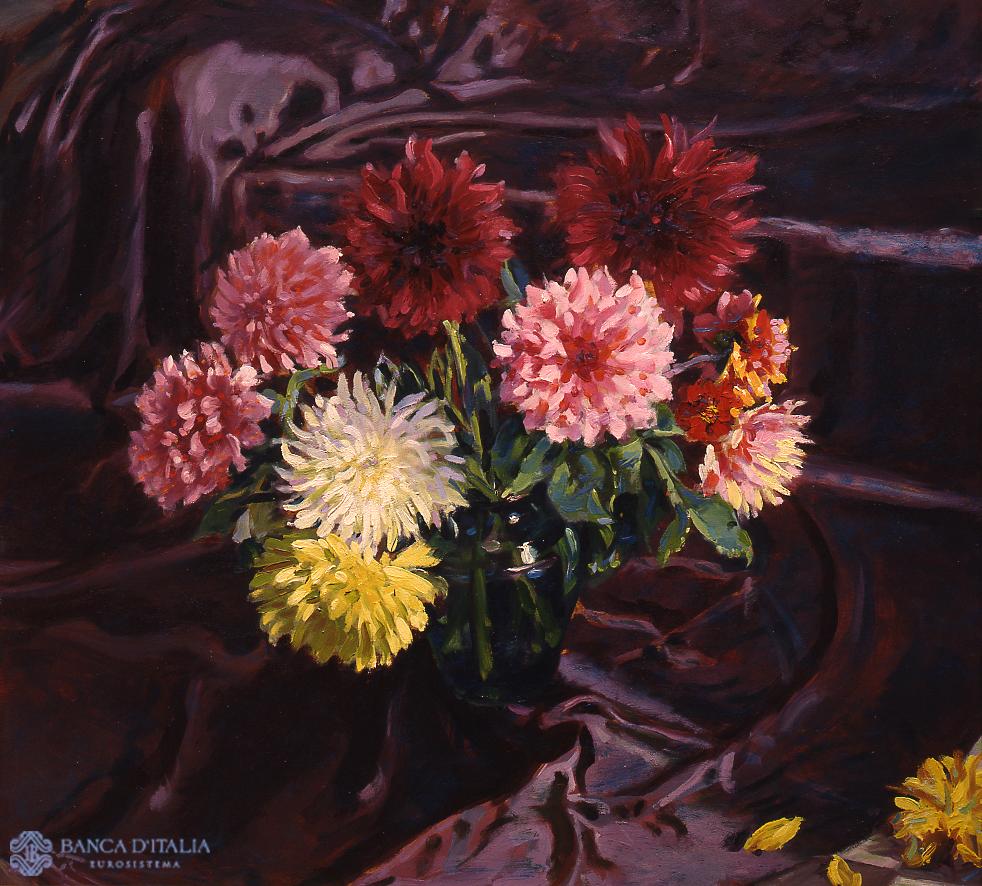Balla worked on this theme between 1931 (the date of a first painting of dahlias, in a private collection in Rome) and 1945, when he executed his Splendore di dalie. Here, not only is the theme repeated, but the composition too resembles those earlier works, especially the 1945 painting. The vase rests on a violet-coloured cloth of shimmering folds. The dahlias open up to the light: the fleshy pinks are lighter in the frontal view, where the rays of the sun strike them in full. The whites, alongside the yellows, stand out in their fragrant freshness. The reds, farther from the source of the light, are lively only in the corollas. A yellow flower has fallen out of the vase and lies in the lower corner alongside the fallen petals. Balla had abandoned Futurism and gone back to a quasi-photographic realism already by the late 1920s. But if the still lifes, some landscapes and many portraits are now heavy with material and a certain lack of inventiveness, in depicting flowers the artist retains his freshness and always the highest painterly quality. These dahlias, a fiesta of joyous, vivid colours against the dark backdrop, conserve the cheery, vital state of mind that Balla always drew from his contact with nature, which brings this painting fairly close, in poetic inspiration, to his Futurist inventions.
Giacomo Balla, Dalie luminose
Dalie luminose
Painting
20th century AD
Still life
Artist
Date
1940
Material and technique
Oil on board
Measurements
101 x 112 cm
Compiler
Augusta Monferini

